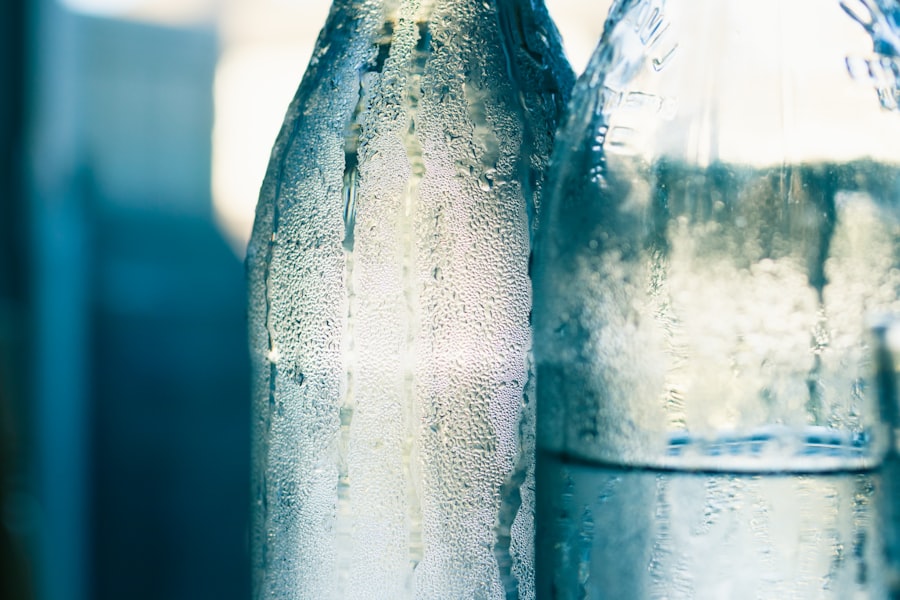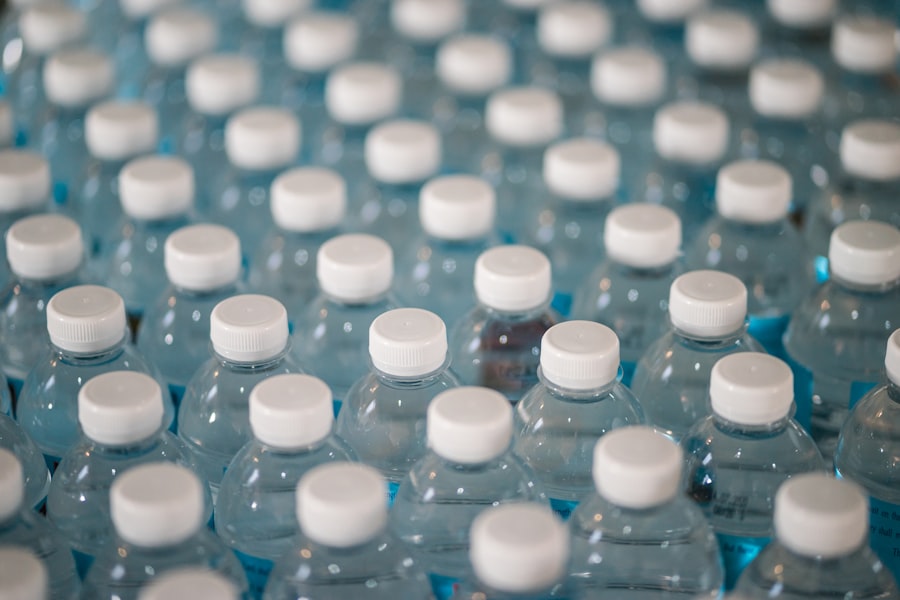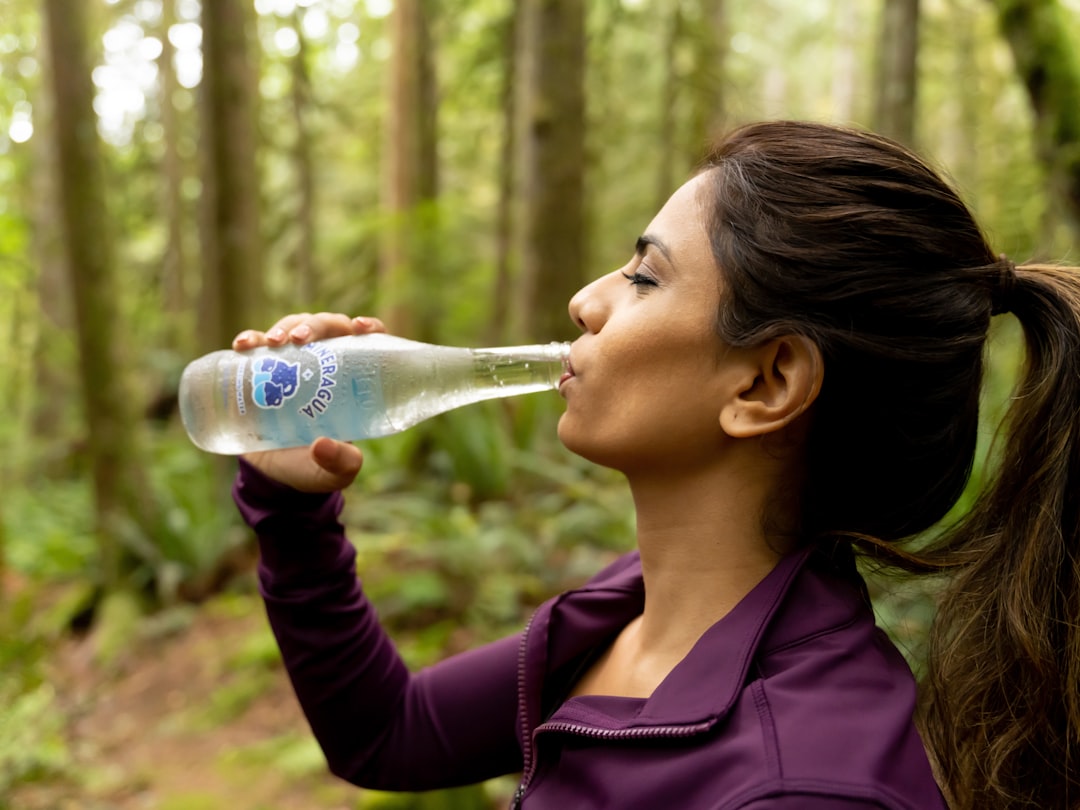The environmental consequences of bottled water production and consumption are profound and far-reaching. Each year, millions of plastic bottles are produced, transported, and discarded, contributing significantly to global plastic pollution. The extraction of water from natural sources for bottling often leads to depletion of local aquifers, which can disrupt ecosystems and harm wildlife.
In many cases, the water is sourced from areas already facing water scarcity, exacerbating the challenges faced by local communities. Furthermore, the energy required for the manufacturing, transportation, and refrigeration of bottled water adds to the carbon footprint associated with this industry. In addition to the depletion of natural resources, the disposal of plastic bottles poses a significant environmental challenge.
While some bottles are recycled, a substantial number end up in landfills or, worse, in oceans and waterways. This not only contributes to the growing problem of marine debris but also poses a threat to aquatic life. Animals often mistake plastic for food, leading to ingestion that can be fatal.
The breakdown of plastic into microplastics further complicates the issue, as these tiny particles can enter the food chain and ultimately affect human health. The environmental impact of bottled water is a pressing concern that calls for immediate attention and action.
Key Takeaways
- Bottled water has significant environmental and plastic pollution impacts.
- Tap water offers health benefits, cost savings, and convenience over bottled water.
- Improving tap water taste can encourage its consumption and reduce bottled water use.
- Proper hydration is essential, and sustainable alternatives help minimize plastic waste.
- Transitioning to tap water supports a more sustainable future for drinking water.
The Health Risks of Bottled Water
While bottled water is often marketed as a safe and healthy alternative to tap water, it is not without its health risks. One major concern is the potential for chemical leaching from the plastic bottles themselves.
These substances have been linked to various health issues, including hormonal disruptions and increased risk of certain cancers. Moreover, bottled water is not necessarily free from contaminants. In some cases, bottled water is simply repurposed tap water that has undergone minimal filtration.
This means that it may still contain impurities or harmful microorganisms if not properly treated. Additionally, the lack of stringent regulations governing bottled water quality can lead to inconsistencies in safety standards across different brands. Consumers may unknowingly expose themselves to health risks by relying on bottled water without understanding its source or treatment process.
The Cost of Bottled Water

The financial implications of choosing bottled water over tap water are significant and often overlooked. On average, bottled water costs consumers hundreds of times more than tap water. For instance, while tap water may cost mere cents per gallon, bottled water can range from $1 to $3 or more for a single liter.
This disparity highlights not only the economic burden on individuals but also the broader implications for families and communities who may struggle to afford such a costly necessity. Furthermore, the hidden costs associated with bottled water extend beyond the price tag on the bottle itself. The environmental degradation caused by plastic production and waste management has economic repercussions that affect society as a whole.
Local governments often face increased costs related to waste disposal and recycling efforts due to the high volume of plastic waste generated by bottled water consumption. By choosing tap water instead, individuals can save money while also contributing to a more sustainable future.
The Benefits of Tap Water
| Benefit | Description | Metric/Impact |
|---|---|---|
| Cost-Effective | Tap water is significantly cheaper than bottled water or other beverages. | Average cost per gallon: 0.002 |
| Environmental Impact | Using tap water reduces plastic waste and carbon footprint associated with bottled water production and transport. | Plastic waste reduction: Up to 1,500 bottles per person annually |
| Accessibility | Tap water is readily available in most homes and public places, ensuring easy access to safe drinking water. | Availability: 99% of urban households |
| Health Benefits | Tap water is regulated and often contains essential minerals like fluoride that support dental health. | Fluoride concentration: 0.7 mg/L recommended |
| Convenience | Tap water is available on demand without the need to purchase or carry bottles. | Instant access: 24/7 in most homes |
Tap water offers numerous advantages that make it a preferable choice over bottled water. One of the most significant benefits is its affordability. Accessing clean drinking water from the tap is not only cost-effective but also ensures that families can hydrate without breaking the bank.
In addition to being economical, tap water is also environmentally friendly. By opting for tap water instead of bottled alternatives, individuals can significantly reduce their plastic consumption and contribute to less waste in landfills and oceans.
Many municipalities have invested in improving their water infrastructure, ensuring that residents have access to high-quality drinking water straight from their faucets. This commitment to public health and environmental sustainability makes tap water an attractive option for conscientious consumers.
How to Improve the Taste of Tap Water
For those who may be hesitant about drinking tap water due to taste concerns, there are several effective ways to enhance its flavor. One popular method is using a water filter system that can remove impurities and improve taste. These filters come in various forms, including pitcher filters, faucet-mounted filters, and under-sink systems.
By investing in a quality filtration system, individuals can enjoy cleaner and better-tasting water right from their taps. Another simple way to improve the taste of tap water is by infusing it with natural flavors. Adding slices of fruits like lemon, cucumber, or berries can create refreshing beverages without the need for added sugars or artificial flavors.
Herbs such as mint or basil can also provide a delightful twist to plain water. These creative approaches not only enhance flavor but also encourage individuals to drink more water throughout the day.
The Convenience of Tap Water

The convenience of tap water cannot be overstated. Unlike bottled water, which requires purchasing and carrying home from stores, tap water is readily available at home or in public spaces like parks and restaurants. This accessibility makes it easy for individuals to stay hydrated without the hassle of constantly replenishing their supply of bottled beverages.
Additionally, many public facilities now offer refill stations where people can fill reusable bottles with clean tap water, further promoting hydration on-the-go. Moreover, the convenience of tap water extends beyond just accessibility; it also eliminates concerns about running out of drinking water during outings or travel. With a reusable bottle in hand, individuals can easily refill their containers whenever they encounter a tap or refill station.
This not only encourages sustainable practices but also fosters a culture of hydration that benefits overall health.
The Importance of Proper Hydration
Proper hydration is essential for maintaining overall health and well-being. Water plays a crucial role in various bodily functions, including regulating temperature, aiding digestion, and transporting nutrients throughout the body. Dehydration can lead to a host of health issues ranging from fatigue and headaches to more severe complications like kidney stones or urinary tract infections.
Therefore, ensuring adequate fluid intake is vital for everyone. In addition to physical health benefits, staying hydrated can also positively impact mental clarity and mood. Studies have shown that even mild dehydration can impair cognitive function and lead to feelings of irritability or fatigue.
By prioritizing hydration through accessible sources like tap water, individuals can support both their physical and mental well-being.
The Impact of Plastic Pollution
Plastic pollution has emerged as one of the most pressing environmental challenges facing the planet today. The proliferation of single-use plastics, particularly in the form of bottled beverages, has led to devastating consequences for ecosystems worldwide. Marine life is particularly vulnerable; countless animals ingest plastic debris or become entangled in it, leading to injury or death.
Furthermore, microplastics have infiltrated food chains and even drinking water supplies, raising concerns about their long-term effects on human health. The impact of plastic pollution extends beyond wildlife; it also affects communities and economies reliant on clean environments for tourism and fishing industries. As beaches become littered with plastic waste and waterways become contaminated, local economies suffer losses that can take years to recover from.
Addressing plastic pollution requires collective action from individuals, businesses, and governments alike to reduce reliance on single-use plastics and promote sustainable alternatives.
How to Transition from Bottled Water to Tap Water
Transitioning from bottled water to tap water may seem daunting for some individuals accustomed to the convenience of pre-packaged beverages. However, making this switch can be both simple and rewarding with a few practical steps. First, individuals can start by investing in a reusable water bottle that they can carry with them throughout the day.
This not only encourages hydration but also serves as a reminder to choose tap over bottled options. Next, exploring local resources for tap water quality information can help ease concerns about safety and taste. Many municipalities provide annual reports detailing the quality of their drinking water, including any contaminants present and how they are managed.
Understanding this information can build confidence in choosing tap water as a primary source of hydration.
Sustainable Alternatives to Bottled Water
As awareness grows regarding the environmental impact of bottled water, many sustainable alternatives have emerged that offer eco-friendly solutions for hydration needs. One popular option is using stainless steel or glass reusable bottles that are durable and free from harmful chemicals found in plastics. These bottles not only reduce waste but also keep beverages at optimal temperatures for longer periods.
Another alternative gaining traction is flavored sparkling waters packaged in recyclable materials or offered in bulk dispensers at stores. These options provide consumers with refreshing choices without contributing significantly to plastic pollution. Additionally, some companies are exploring innovative packaging solutions made from biodegradable materials that could revolutionize how beverages are consumed while minimizing environmental harm.
The Future of Drinking Water
The future of drinking water will likely be shaped by ongoing advancements in technology and growing awareness about sustainability issues related to traditional sources like bottled beverages. Innovations in filtration systems may lead to even cleaner tap water options that rival bottled alternatives in taste and safety while remaining environmentally friendly. Moreover, as communities continue to prioritize sustainability initiatives, there may be increased investment in public infrastructure aimed at improving access to clean drinking water sources worldwide.
This could include expanding refill stations in urban areas or implementing programs that educate residents about the benefits of choosing tap over bottled options. In conclusion, addressing the myriad issues surrounding bottled water—from environmental impacts and health risks to economic costs—highlights the importance of embracing sustainable alternatives like tap water. By recognizing its benefits and taking steps toward improving taste and convenience while prioritizing proper hydration practices, individuals can contribute positively toward reducing plastic pollution while ensuring their own well-being for years to come.
If you’re looking for effective strategies to reduce your reliance on bottled water, you might find the article on sustainable hydration practices particularly helpful. It offers practical tips and insights on how to make the switch to reusable water bottles and filter systems. You can read more about it in this related article.
WATCH THIS! The $400 Billion Water Lie: Why Bottled Water Is a Scam
FAQs
Why should I stop buying bottled water?
Stopping the purchase of bottled water helps reduce plastic waste, lowers environmental pollution, conserves natural resources, and often saves money. It also decreases the carbon footprint associated with the production and transportation of bottled water.
What are some alternatives to bottled water?
Alternatives include using reusable water bottles made of stainless steel, glass, or BPA-free plastic, installing water filters at home, and drinking tap water where it is safe and regulated.
Is tap water safe to drink compared to bottled water?
In many regions, tap water is strictly regulated and tested for safety, often making it as safe or safer than bottled water. However, water quality can vary by location, so using a home filtration system can improve taste and safety.
How can I make the transition from bottled water to reusable bottles easier?
Start by purchasing a high-quality reusable water bottle that suits your lifestyle, keep it filled and accessible, and gradually replace bottled water purchases with refills. Carrying your bottle when you go out helps maintain the habit.
What environmental impact does bottled water have?
Bottled water production consumes significant amounts of fossil fuels and water, contributes to plastic pollution, and generates greenhouse gas emissions during manufacturing and transportation.
Can using a water filter improve the taste of tap water?
Yes, water filters can remove chlorine, sediments, and other impurities that affect taste and odor, making tap water more palatable and encouraging people to drink more water without relying on bottled options.
Are there any health concerns with drinking bottled water?
While bottled water is generally safe, some studies suggest that chemicals from plastic bottles, such as BPA or microplastics, may leach into the water, especially if bottles are exposed to heat or stored for long periods.
How much money can I save by not buying bottled water?
Savings vary depending on consumption, but switching to tap water and reusable bottles can save hundreds of dollars annually compared to regularly purchasing bottled water.
What should I look for in a reusable water bottle?
Consider durability, material safety (BPA-free), ease of cleaning, size, insulation properties, and whether it fits your lifestyle needs such as portability or keeping water cold or hot.
Is it possible to recycle bottled water containers?
Yes, most plastic water bottles are recyclable, but recycling rates vary by location. Reducing use is more effective than recycling alone in minimizing environmental impact.
